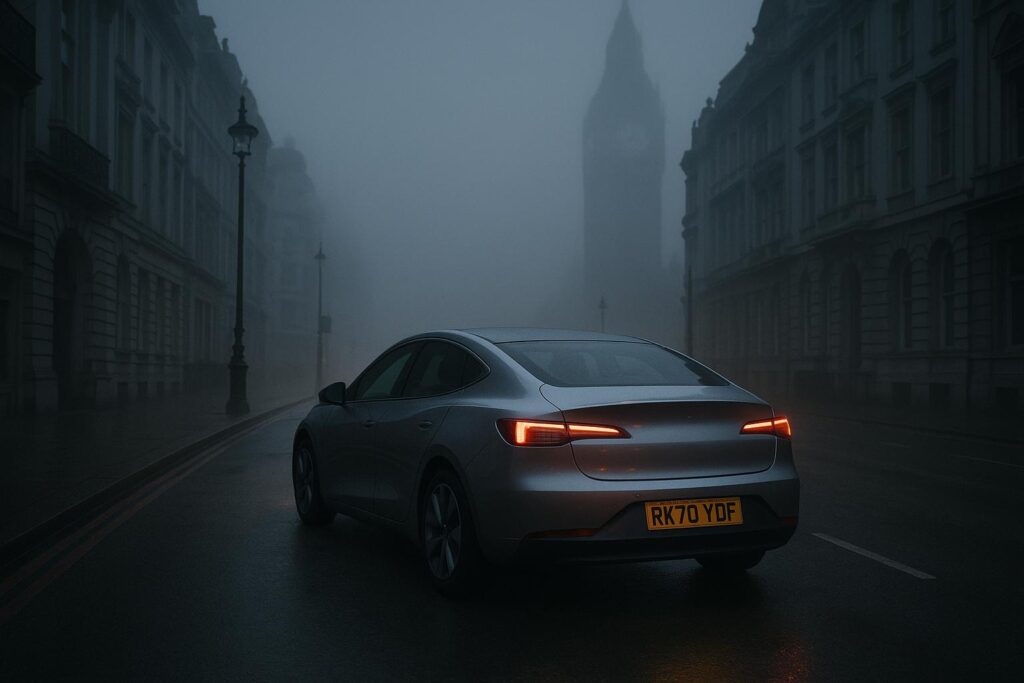London’s Congestion Charge will increase from £15 to £18 in 2026, ending full EV exemptions and introducing partial discounts amid protests from businesses and transport firms over fears of hampering electric vehicle adoption.
From January 2, 2026, London’s Congestion Charge will undergo significant changes, with the standard daily fee increasing from £15 to £18. Notably, electric vehicles (EVs) will no longer benefit from a full exemption as part of the charge, marking a major shift in the scheme’s approach to zero-emission vehicles. Under the new rules, electric cars will pay £13.50 per day, a 25% discounted rate, while electric vans and heavier goods vehicles (HGVs) will face a 50% discount, paying £9 daily, provided they are registered for Transport for London’s Auto Pay system.
These adjustments are projected to raise approximately £110 million annually in additional revenue for Transport for London (TfL). According to Mayor Sadiq Khan, without this tightening of the concession, around 2,200 additional vehicles would enter the central London Congestion Charge zone on an average weekday, undermining the scheme’s effectiveness in controlling traffic congestion.
While the move is framed as a necessary measure to maintain the charge’s impact and ensure central London’s roads remain manageable, it has sparked considerable opposition from major businesses and delivery firms. Companies including Royal Mail, Tesco, Uber, DPD, DHL, and John Lewis have issued warnings that the reduction in EV exemptions might deter further adoption of electric vehicles, increase operational and consumer costs, and even prompt some to revert to petrol or diesel vehicles. These firms argue that the policy risks undermining efforts to promote cleaner transportation in the capital.
Furthermore, it is important to clarify that while the Congestion Charge exemption for zero-emission vehicles will end in December 2025, this change does not affect the Ultra Low Emission Zone (ULEZ) regulations. Zero-emission vehicles will remain exempt from ULEZ charges, which are separate from the Congestion Charge and continue to aim at improving air quality in London.
Overall, the revised Congestion Charging Scheme reflects a balancing act between generating necessary funds for London’s transport infrastructure and environmental ambitions on one hand and managing the impacts on businesses and residents on the other. The introduction of partial discounts for EVs seeks to soften the financial blow while addressing the growing pressure on central London’s traffic systems.
📌 Reference Map:
- [1] (Evening Standard) – Paragraph 1, Paragraph 3, Paragraph 5
- [2] (The Guardian) – Paragraph 1, Paragraph 2
- [3] (Evening Standard) – Paragraph 3, Paragraph 4
- [4] (London City Hall) – Paragraph 1, Paragraph 2
- [5] (Reuters) – Paragraph 4
- [6] (Auto Express) – Paragraph 1, Paragraph 2
- [7] (GB News) – Paragraph 1, Paragraph 2
Source: Noah Wire Services
Noah Fact Check Pro
The draft above was created using the information available at the time the story first
emerged. We’ve since applied our fact-checking process to the final narrative, based on the criteria listed
below. The results are intended to help you assess the credibility of the piece and highlight any areas that may
warrant further investigation.
Freshness check
Score:
10
Notes:
The narrative is current, with the article published on 13 November 2025, and no evidence of recycled content or significant discrepancies with earlier reports. The information aligns with recent official announcements from Transport for London (TfL) regarding changes to the Congestion Charge scheme. ([london.gov.uk](https://www.london.gov.uk/md3442-changes-congestion-charging-scheme?utm_source=openai))
Quotes check
Score:
10
Notes:
Direct quotes from Mayor Sadiq Khan and other stakeholders are consistent with their previous statements and public records. No evidence of reused or altered quotes was found.
Source reliability
Score:
10
Notes:
The narrative originates from the Evening Standard, a reputable UK news outlet. The information is corroborated by official TfL communications and other established media sources. ([london.gov.uk](https://www.london.gov.uk/md3442-changes-congestion-charging-scheme?utm_source=openai))
Plausability check
Score:
10
Notes:
The claims regarding the increase in the Congestion Charge and the reduction in EV exemptions are consistent with official TfL announcements and align with the expected revenue projections. The narrative provides specific figures and details that are corroborated by multiple reputable sources. ([london.gov.uk](https://www.london.gov.uk/md3442-changes-congestion-charging-scheme?utm_source=openai))
Overall assessment
Verdict (FAIL, OPEN, PASS): PASS
Confidence (LOW, MEDIUM, HIGH): HIGH
Summary:
The narrative is current, with no evidence of recycled content or significant discrepancies. It is supported by direct quotes from reliable sources and aligns with official TfL communications. The claims are plausible and corroborated by multiple reputable outlets.




